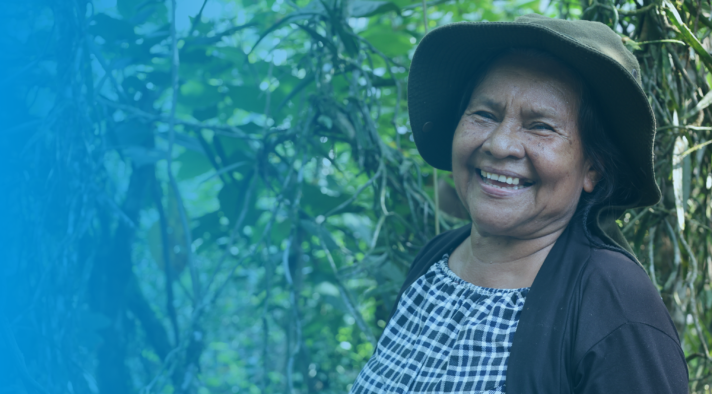Launch of RegionsAdapt Progress Report: Regional Governments Driving Climate Resilient Development
Today is Resilience Day at COP27 – the Conference of the Parties to the United Nations Framework Convention on Climate Change, and will be marked by the launch of RegionsAdapt Progress Report 2021 – 2022: “Regional Governments Driving Climate Resilient Development”
RegionsAdapt is Regions4 Climate flagship initiative that has been supporting regional governments in implementing climate change adaptation strategies since 2015.
It is a pioneering initiative that brings together leading regions working on climate change adaptation to foster collaboration and raise capacities. With more than 70 signatory members, impacting over 300 million citizens, RegionsAdapt is mobilizing regional governments’ efforts on climate adaptation worldwide.
In 2021, RegionsAdapt joined the Race to Resilience as an official partner. This UN-backed global campaign led by the High-Level Climate Champions for Climate Action is answering the call for more coordinated action on climate adaptation and building resilience for 4 billion people from vulnerable groups and communities to climate risks.
You Can’t Master What You Don’t Measure
RegionsAdapt encourages its members to annually report on their actions, commitments, and progress through the online CDP States and Regions Questionnaire.
This data is very valuable as it is one of the only reporting mechanisms capturing the progress of regional governments on adaptation. Regions4 then compiles and publishes its annual report to share this information widely.
This year’s edition, which is being launched today at COP27, covers two years of CDP data for 2021-2022 and includes qualitative data from additional interviews conducted in partnership with the Basque Center for Climate Change (BC3).
| 32 regions from 16 countries have disclosed their progress in 2021-2022 through the CDP States and Regions Questionnaire. |
| 8 regions and members have participated in complementary interviews with BC3: Catalonia (Spain), Consorcio de Gobiernos Autónomos Provinciales del Ecuador CONGOPE (Ecuador), Cross River State (Nigeria), Flanders (Belgium), Jalisco (Mexico), Lombardy (Italy), Québec (Canada), and São Paulo (Brazil). |
The report also shows the alignment of this collective process with the framework of the Race to Resilience campaign, which aims to quantify the impact regions are having in building resilience as a result of the adaptation measures implemented.
A clear progression towards adopting, implementing adaptation plans, and taking action
As reflected in the CDP data and the qualitative interviews supported by BC3, the findings show that governments have increased their efforts in adaptation in recent years, mainly due to their need to respond to the harsh consequences of climate change impacts and increasing extreme weather events that they are already suffering.
Regional governments have been taking adaptation plans and actions forward thanks to:
- improved knowledge and coordination.
- recognition of the importance to increase risk and vulnerability assessments.
- more access to funding and collaboration opportunities.
- Improvement of key instruments, such as climate change laws, increase in knowledge and training on climate change, and development of financial instruments to create the jurisdiction-level resource.
Key findings
The Report shows that regional governments have improved and accelerated actions on:
- Evaluating the direct and indirect socio-economic risks: 93% of disclosing regions in 2021 have reported an increasing number of socio-economic risks (112) due to climate change, which reflects the widespread impacts and awareness of current climate change to the society and economy.
- Increasing the number of climate adaptation plans in place: In 2021 and 2022, 72 % of disclosing regions reported having a climate adaptation plan, which shows progress compared to previous years (68% in 2020). The main reason regions have increased their efforts is due to the harsh consequences and impacts of climate change, especially extreme weather events which have increased in recent years.
- Actions: Regions have reported 222 adaptation actions in 2021, and reported 100 actions in 2022
30% of actions: climate risk governance & capacity building.
18% of actions: climate-proofing infrastructure & services.
15% of actions: sharing knowledge & best practices.
15% of actions: risks assessment & monitoring.
11% of actions: nature-based solutions.
- Progress on regulation and legislation worldwide, with many regions having, or being in the process of developing specific climate change laws. There has also been major progress in terms of access to data availability and public training on climate change, which shows that knowledge is a key driver to mobilizing society into acting against climate change.
- Mainstreaming adaptation into other sectoral policies: there has been undeniable progress in mainstreaming adaptation in other sectors along with better coordination between departments, with many regions developing new coordination mechanisms focused on climate change.
Progress gap between regions
However, this progression has been uneven across regions, creating a gap between industrialized regions on one side, and middle, and lower-income regions on the other side, even though the latter suffer most from the impacts of climate change.
Industrialized and high-income regions are the regions with the longest adaptation experience and progress (with some high-income regions in the process of developing or even implementing their second adaptation plans or strategies).
Regions from the Global South have recently implemented or are in the process of developing their first plan and urgently need financing, data, and capacity. Regions with fewer resources, which are also the most vulnerable to climate change threats, still lack the funding and expertise to start the adaptation processes.
Key Recommendations
| Developing more risk and vulnerability assessments and systematically using them to inform adaptation policies and actions. More data-driven information and territorialized analysis of climate impact help with political decisions and public awareness. |
| Identifying and targeting vulnerable populations in risk assessments and adaptation planning. This report has highlighted the gap between the harsh realities already faced by vulnerable populations and their lack of inclusion in assessments or planning. |
| Developing monitoring, evaluation, and reporting processes, which are of great importance in the regions, yet remain a big area for improvement. |
| Favor the use of instruments for adaptation that have a proven track of success, such as climate public policies, projects, regulations, legislation, and training. Additionally, facilitate access to funding for climate adaptation at the regional and local levels, as a general trend observed is that resources received from national budgets are scarce in comparison to the region’s own resources. |
RegionsAdapt, through its Community of Practice, collaborates with key partners of the Race to Resilience, and the Local Governments and Municipal Authorities Constituency (LGMA) to explore how to increase peer-to-peer learning, advocate for the decentralization of climate finance, climate data availability, and continue sharing good practices to give regional government tools to accelerate climate adaptation implementation in their territory.
Download the full report by filling this form:



